Intersex Advocate Trust Zimbabwe was formed in 2016 to respond to the psycho social needs of all intersex persons (including intersex children and their parents, and gender non-conforming adults).
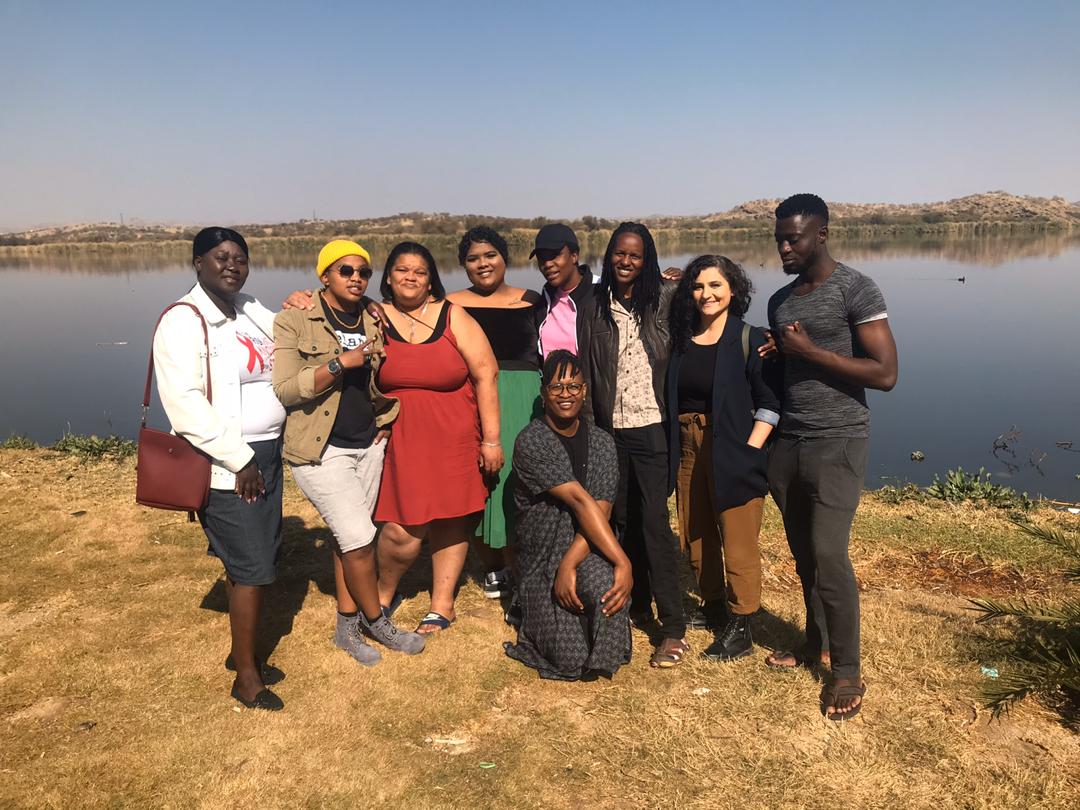
The organisation was formed in 2016 to respond to the psycho social needs of all intersex persons (including intersex children and their parents, and gender non-conforming adults). Intersex children face abandonment at birth, corrective sex assignment at birth, backlash against gender non-conformity including in gender expression. Biological essentialism has led to mutilation of some intersex children’s genitalia to fall into an assigned sex either male or female in an absolute binary. Mysticism around intersex births is still a culture barrier to visibility of intersex persons. As time goes on, the children grow entering in adolescence and the nature of their psycho social needs also evolves. Sexual Reproductive Health issues start coming up and the parents and caregivers struggle with responding to the questions posed to them. The service center is inundated with the cries for help from desperate parents as the genitalia of the child becomes an issue. Intersex Advocate Trust Zimbabwe intends to rollout a vertical and horizontal scale up of it’s current activities in order to increase the courage and impact of Sexual Reproductive Health and Rights. The mission of Intersex Advocate Trust Zimbabwe IAZ is to create a society that is non-discriminating to sexuality and human rights and needs. It serves as an advocate of sexual inequalities.
Intersex Community of Zimbabwe (ICoZ) was formed in October 2018. They are raising awareness on intersex reality with social media and live interviews, as well as sensitisation workshops for healthcare professionals.
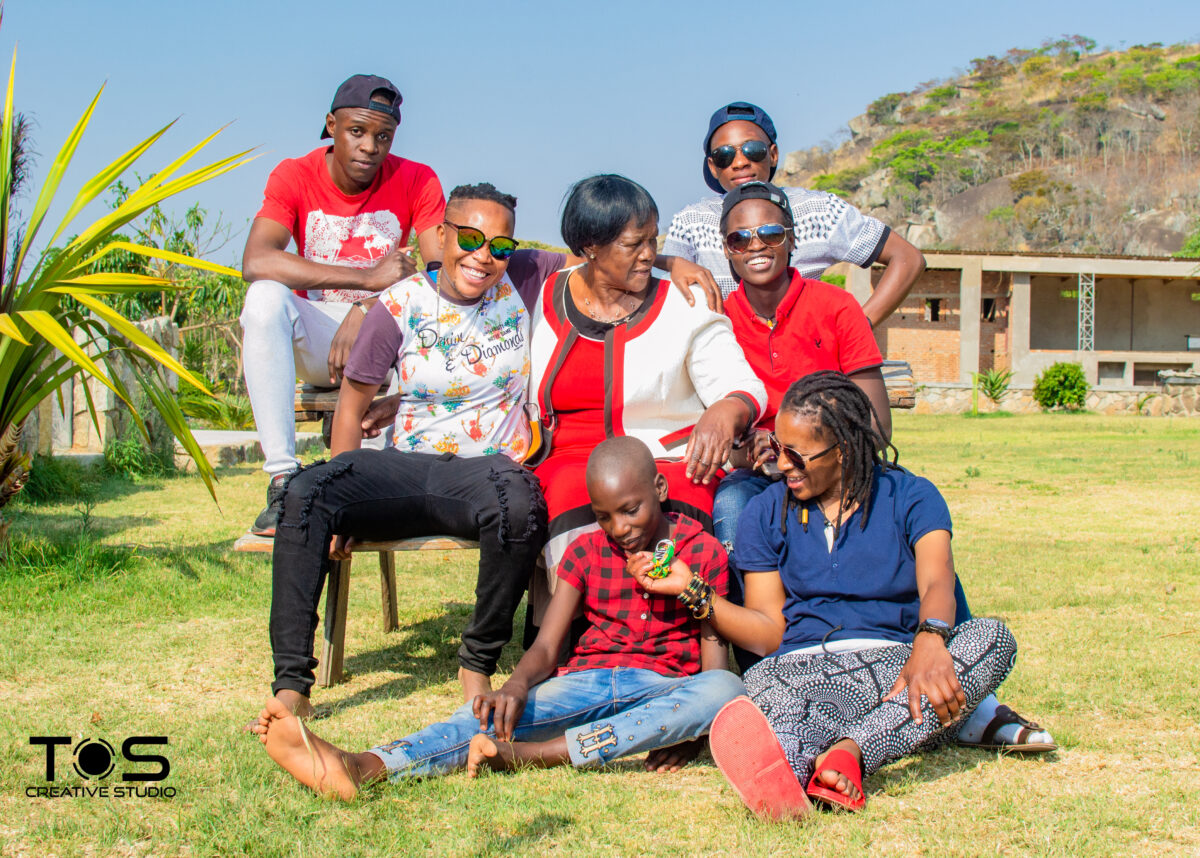
Intersex Community of Zimbabwe (ICoZ) was formed in October 2018. They are raising awareness on intersex reality with social media and live interviews, as well as sensitisation workshops for healthcare professionals. They are also working in having intersex people included in the HIV and AIDS debates, with participation in panels on the topic. They engage in advocacy with UN with a contribution about The Rights of Intersex Women and Girls in Zimbabwe, as an NGO submission for the 75th session of the Pre–Sessional Working Group of Committee on the Elimination of Discrimination Against Women. They are also involved in the UPR process in Harare, and participated in the Child Rights Coalition Conference.During covid–19 they created a specific program with donations across their territories, to empower the intersex community (intersex adults and families of intersex children) with skills to make different products such as hand sanitizers, orange juice for vitamine C, soap making, and gardening activities (to promote healthy eating and to help raise funds by selling fresh vegetables). They are also involved in regional meetings and international intersex networks. In 2019, ICoZ was part of a delegate representing the African Intersex Movement (AIM) at the African Commission which traveled to The Gambia to present an information note on The Rights of Intersex Persons in Africa.
Trans Smart Trust works to promote the identification, inclusion, integration and assimilation of human rights issues affecting Intersex and transgender persons within different social groups of the larger Zimbabwean community.
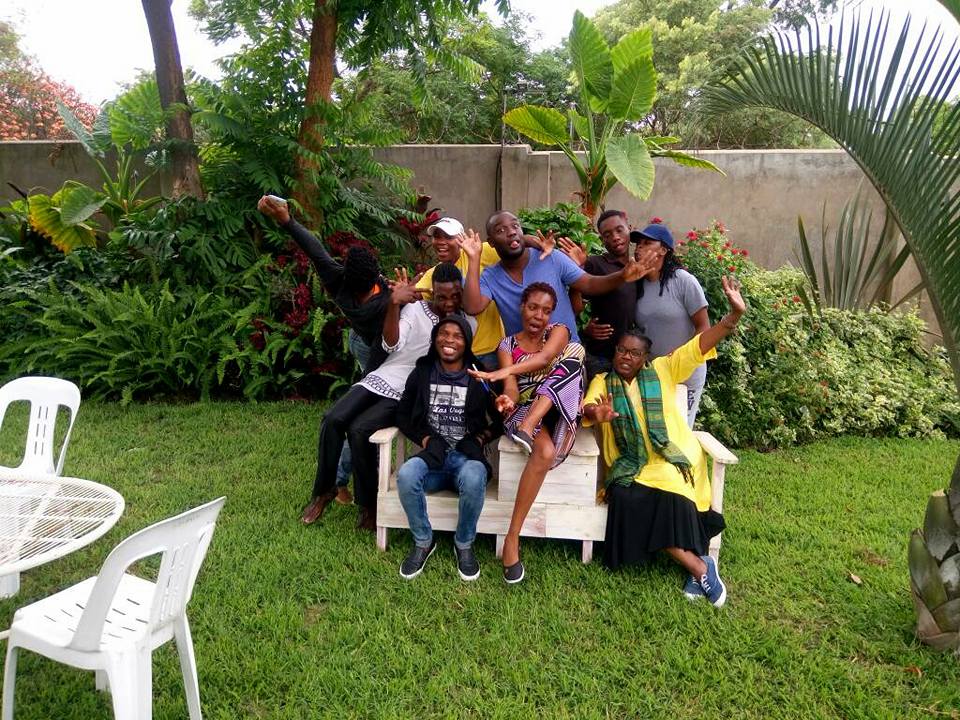
Trans Smart Trust is an organization focused on intersex and transgender persons founded in 2012 and registered as a Trust on the 16th of July 2016 after a long struggle in an environment where there is limited appreciation and acknowledgement of the existence of intersex and transgender persons. Trans Smart Trust works to promote the identification, inclusion, integration and assimilation of human rights issues affecting Intersex and transgender persons within different social groups of the larger Zimbabwean community. Through Trans Smart strategic focus, the organization’s participatory methodologies have become the fulcrum for integrated inventiveness in developing intersex and transgender person’s livelihoods. The organization has continuously been working on improving the Health, Human rights, Life Skills, Capacities and participation in governance processes. Trans Smart Trust manages a portfolio of projects targeting intersex and Transgender persons who constitute intersex and transgender people living with HIV, albinism within urban and rural areas. The organization’s activities bridges the knowledge gaps through information dissemination and provides capacity building for rural and urban populaces, facilitates platforms for the community and its leadership to interrogate as well as take action in promoting human rights.
PaKasipiti is a collective of LBT people striving to create safe spaces to develop the capacities of LBT people and promote social acceptance of gender and sexual diversity in Zimbabwe.
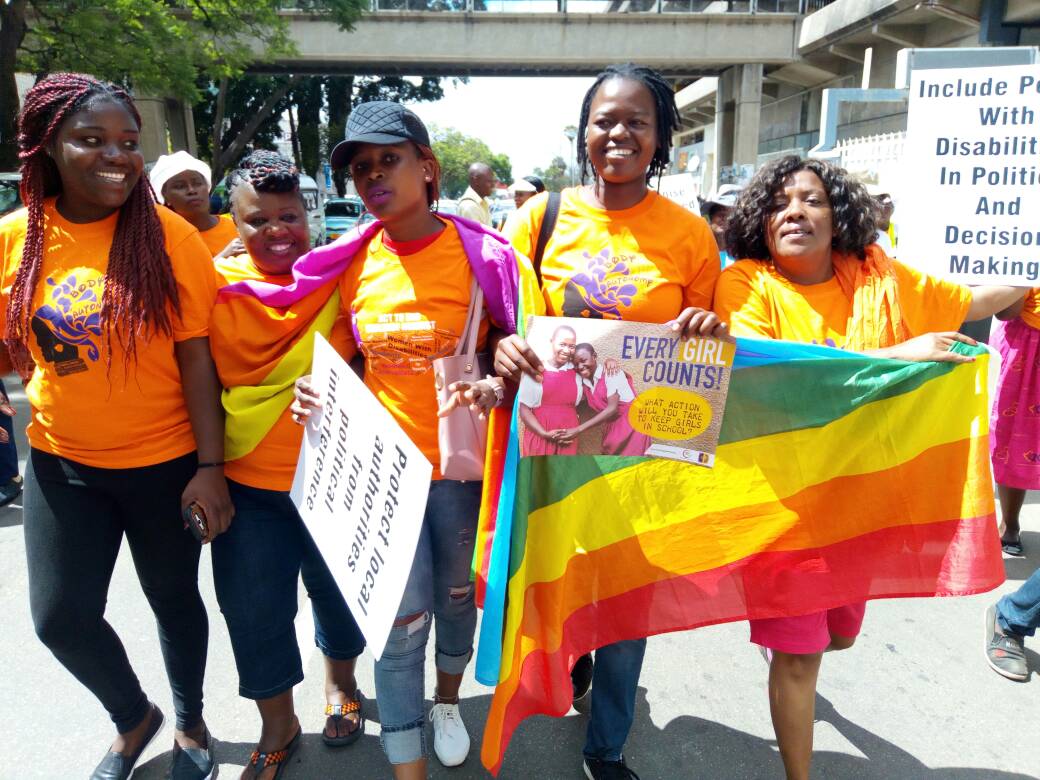
PaKasipiti is a collective of LBT people striving to create safe spaces to develop the capacities of LBT people and promote social acceptance of gender and sexual diversity in Zimbabwe. PaKasipiti translates to “at the Spring,” a place where LBT people can replenish their energies and thrive. They provide rights literacy, communication and advocacy trainings to LBT people as a basis for growing activism and raise the demands of LBT people in national and regional LGBTQ and feminist coalitions such as the Women’s Coalition of Zimbabwe, Zimbabwe Lawyers for Human Rights and Coalition of African Lesbians. PaKasipiti hosts forums for LBT people and is developing an anti-violence support network. They are also interested in training ally stakeholders and civil society partners to build their capacity to speak out on SOGIE issues in various platforms.
Voice of the Voiceless (VOVO) is a feminist collective of LBT activists working to challenge attitudes, beliefs and norms that exclude lesbian, bisexual, transgender and intersex (LBTI) communities from having their voices heard and affirming their human rights.
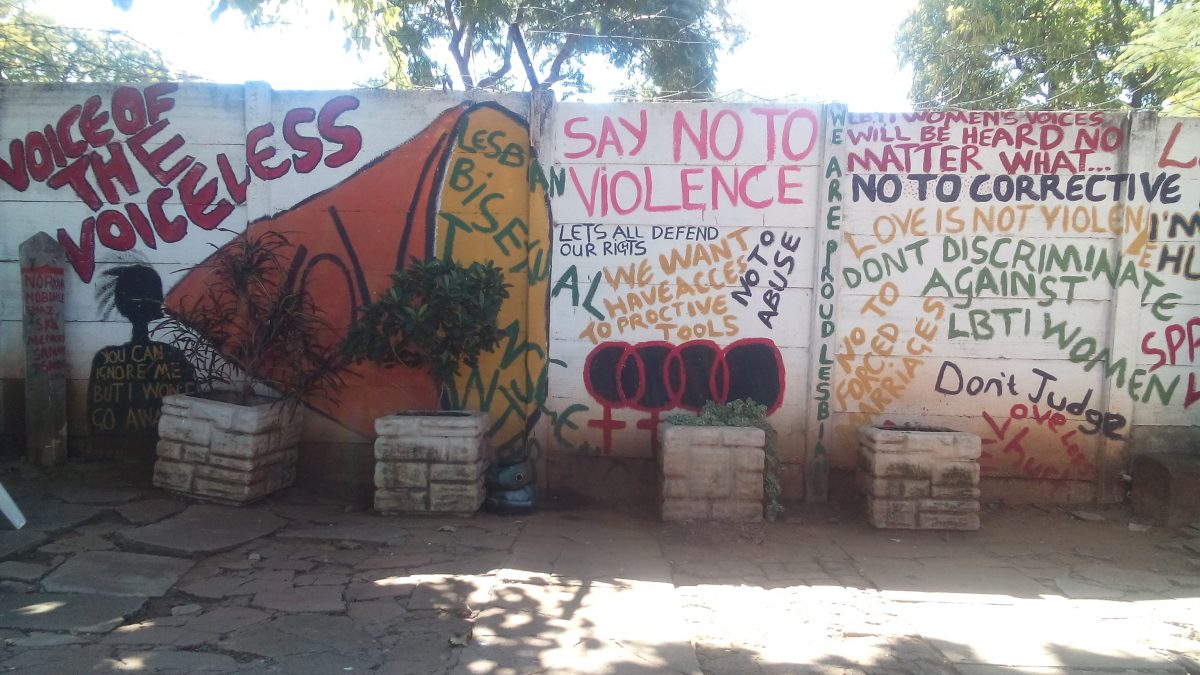
Voice of the Voiceless (VOVO) is a feminist collective of LBT activists working to challenge attitudes, beliefs and norms that exclude lesbian, bisexual, transgender and intersex (LBTI) communities from having their voices heard and affirming their human rights. At the heart of their strategy is cultural change that starts with the community and builds out towards other marginalized communities, incorporating LBTI needs and experiences into feminist movement agendas and shifting the norms upon which larger societal structures are based. At the community level, they run Solidarity Circles, which are learning and support spaces for LBTI people to come together and hold dialogues on feminism, rights, access to justice and experiences of stigma and discrimination. They also host advocacy training workshops and what they call Creative Expression Sessions to provide artistic outlets for LBTI self-expression through forms of art such as painting and storytelling, as well as cross-movement intersectionality dialogues with groups representing a diversity of marginalized women, including sex workers, women with disabilities and others.






